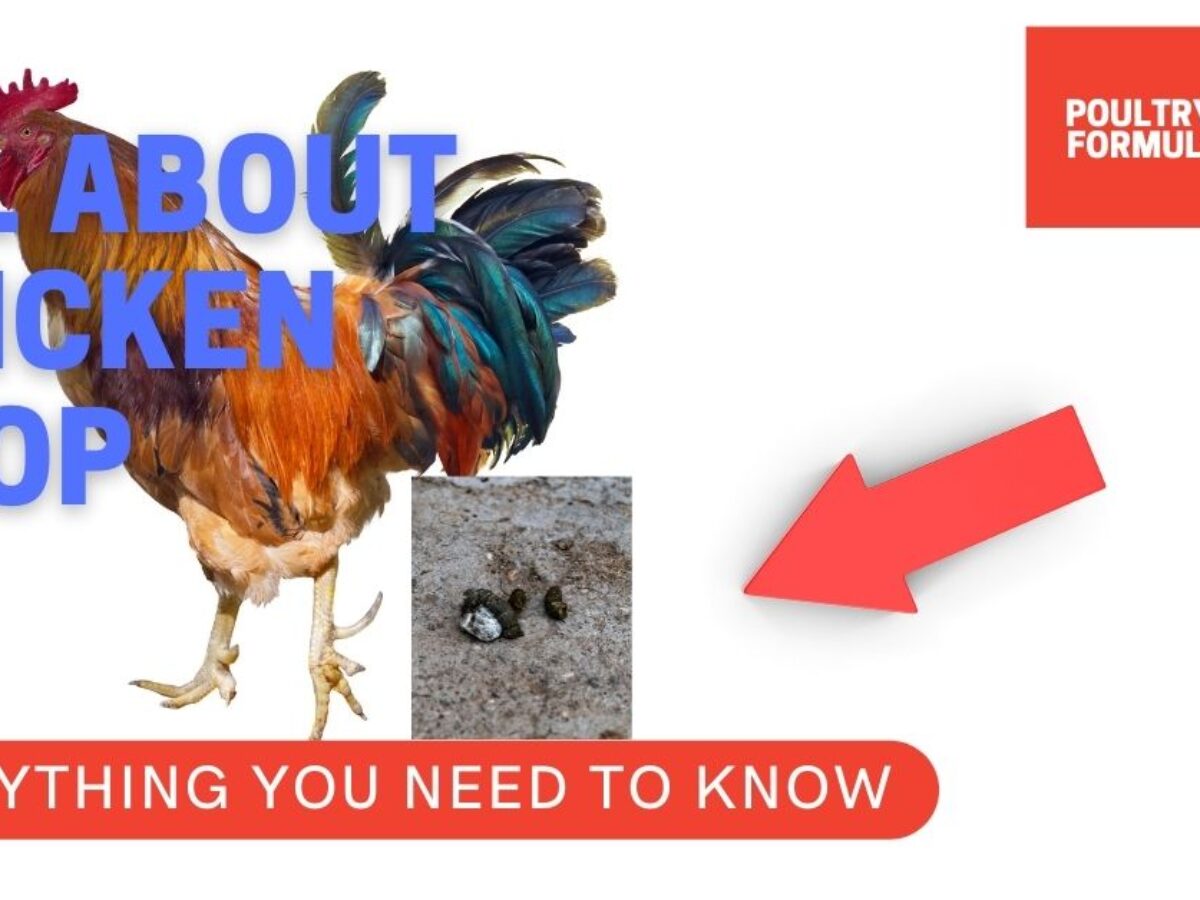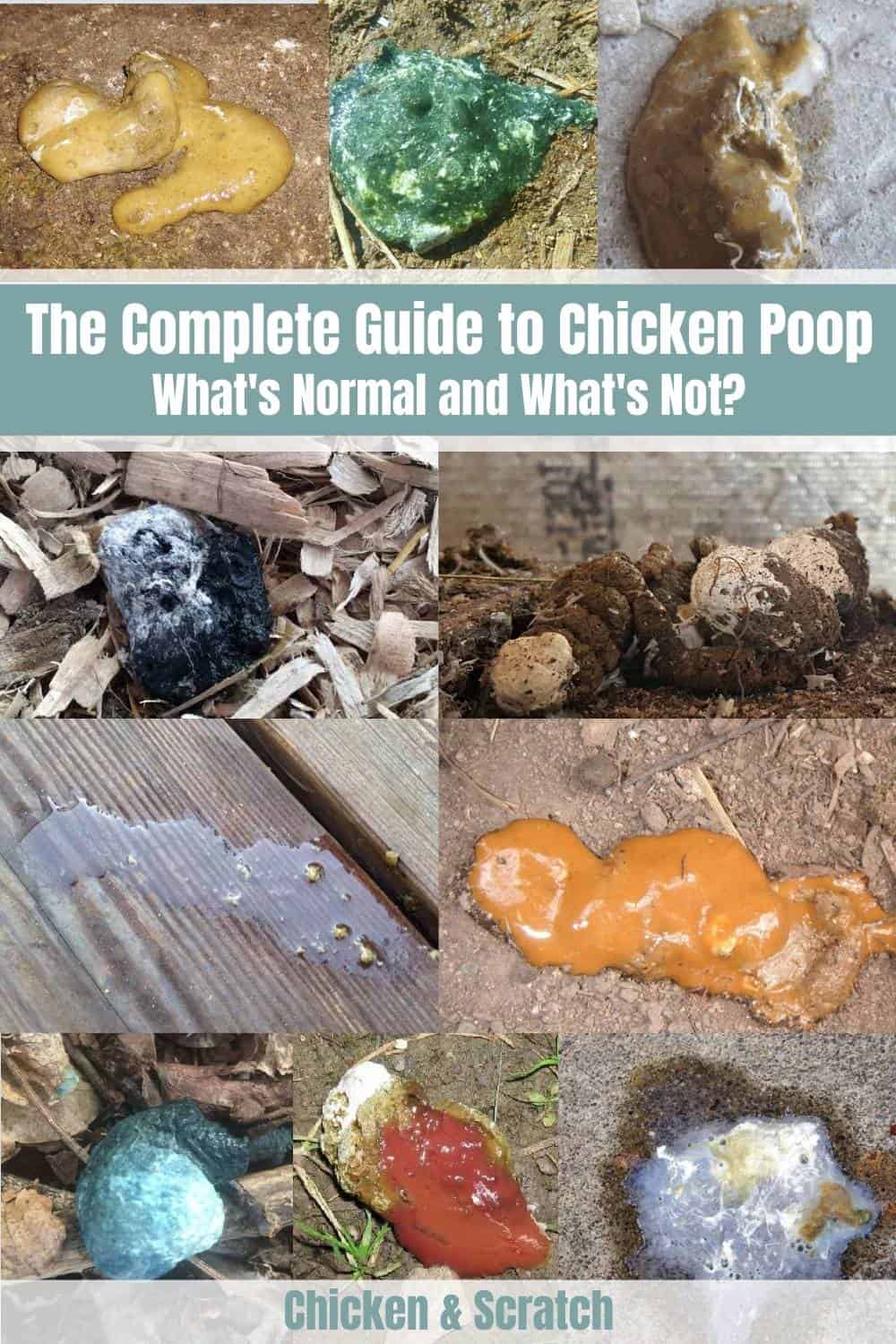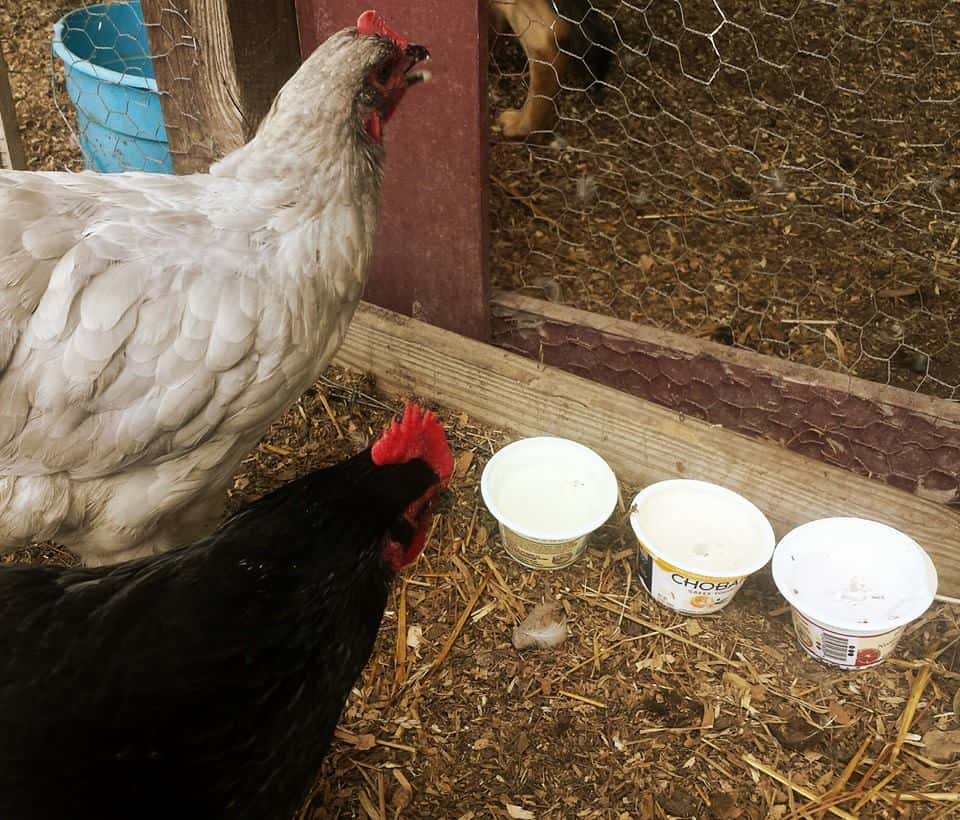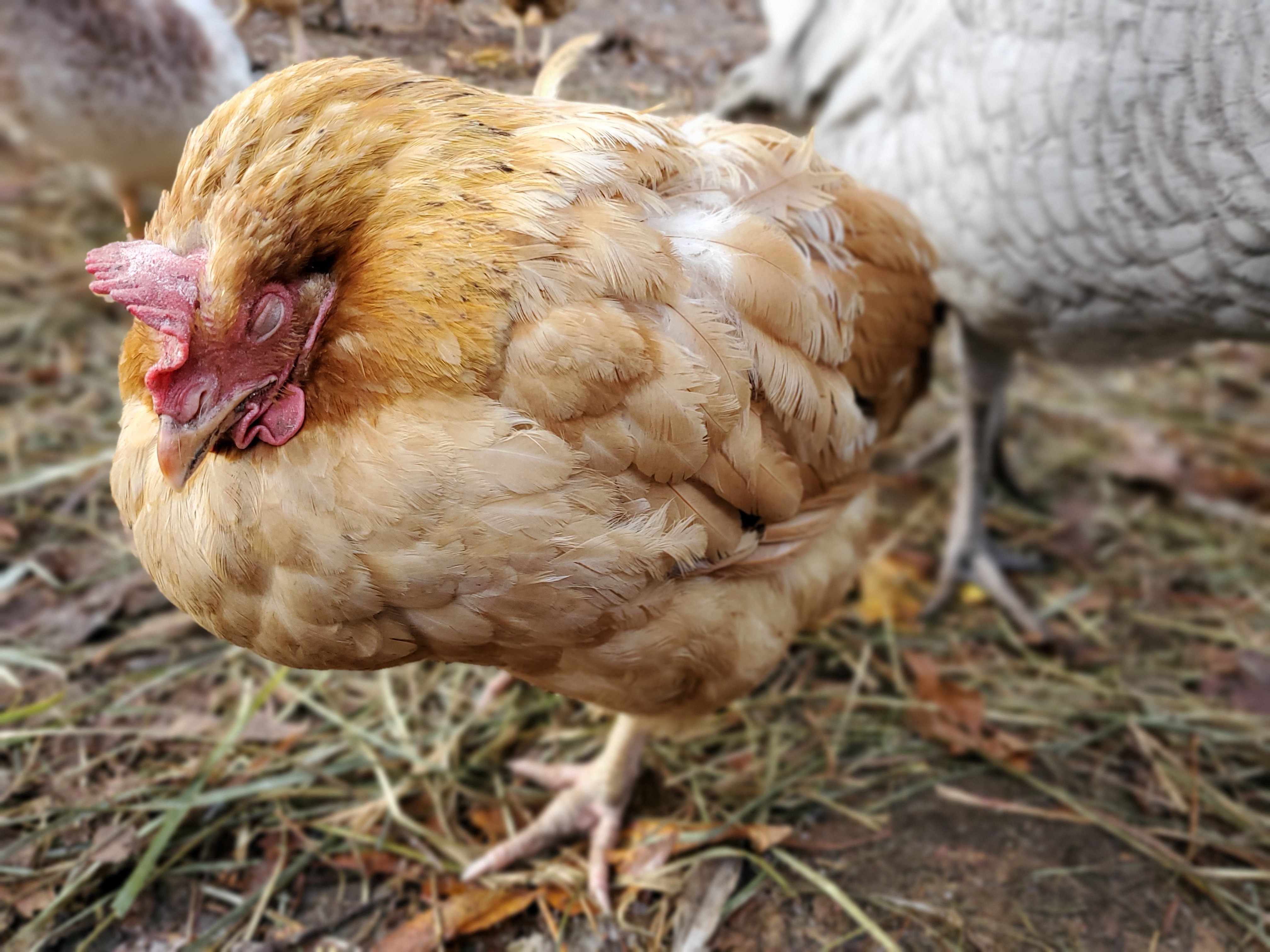Chickens are an increasingly popular choice for backyard farming, but their husbandry can present a few challenges. One of the most common issues is chicken runny poop, which can be a sign of a range of potential health issues. Fortunately, there are steps you can take to help prevent and manage runny chicken poop. In this article, we will discuss the causes of chicken runny poop and provide tips for dealing with it.
Causes of Runny or Watery Poop in Chickens

Diet
An unbalanced diet is one of the most common causes of runny or watery poop in chickens. If the chicken’s diet is too high in carbohydrates, it can lead to watery stools. Additionally, if the chicken is not getting enough variety in their diet, it can lead to digestive problems.
Stress
Stress can also cause chicken’s poop to become runny or watery. If the chicken is in an environment where it feels threatened or unsafe, it will produce more watery stools. It is important to ensure that chickens are in an environment where they feel safe and secure.
Intestinal Parasites
Intestinal parasites are another possible cause for runny or watery poop in chickens. Intestinal parasites can cause a variety of symptoms, including watery stools. It is important to get a veterinary checkup when a chicken has runny poop, as this can be a sign of an intestinal parasite.
Disease
Finally, disease can be a cause of watery stools in chickens. Bacterial or viral infections can cause a chicken to produce watery stools. If a chicken is showing other signs of illness, such as decreased appetite or lethargy, it is important to get a veterinary checkup to rule out any underlying diseases.
How to Identify Runny or Watery Poop in Chickens

- Consistency: Runny or watery chicken poop is usually very loose and liquid-like. It may be slightly thicker than water but should be noticeably runny compared to a normal chicken poop.
- Colour: Normal chicken poop is usually brown in colour. Watery or runny chicken poop, however, can range from green to yellow and sometimes even white.
- Frequency: Watery or runny chicken poop is usually more frequent than normal chicken poop.
- Smell: Runny or watery chicken poop has a more unpleasant smell than normal chicken poop.
- Volume: Runny or watery chicken poop usually has a larger volume than normal chicken poop.
If you notice any of these symptoms in your chickens, it is likely that they have runny poop and you should take immediate action to treat it. Watery or runny chicken poop can be a sign of several different illnesses, so it is important to identify and treat the cause as soon as possible.
Prevention of Runny or Watery Poop in Chickens

Proper Diet
A healthy and balanced diet is essential for preventing chickens with watery poop. Make sure to provide your chickens with a high-quality feed that has adequate levels of protein and other necessary vitamins and minerals. Avoid feeding your chickens foods that contain too much sugar or fat, as this can disrupt their digestion.
Stress Management
Chickens are sensitive to stress and can suffer physical and mental distress when exposed to loud noises, overcrowding, or other sources of stress. To reduce stress, keep your chickens in a safe and clean environment, provide plenty of space, and minimize loud noises.
Regular Health Checks
Regularly check your chickens for signs of illness, such as watery poop, labored breathing, or lethargy. If you notice any of these symptoms, take your chickens to a veterinarian for a check-up.
Vaccination
Vaccination is an important part of preventive health care for chickens. Make sure to consult with your veterinarian to determine which vaccinations your chickens may need.
Treatment of Runny or Watery Poop in Chickens

Antibiotics
Antibiotics are often prescribed for chickens with watery poop as it can be caused by a bacterial infection. The most commonly used antibiotic for chicken is Tetracycline, in either injectable or oral form. It is important to follow the dosage instructions of the veterinarian and to finish the entire course of antibiotics, even if the symptoms improve.
Probiotics
Probiotics are beneficial bacteria that help to balance the gut flora in chickens and can be used to help treat watery poop. Probiotics should be administered twice a day for up to a month until the symptoms have cleared up.
Other Medications
Other medications, such as antiparasitic drugs, may be prescribed by the veterinarian if a worm infestation is suspected to be the cause of the watery poop. It is important to follow the instructions of the veterinarian for the proper dosage and duration of the medication.
Hygiene and Cleanliness
- Frequent Cleaning: Clean the coop and chicken run regularly to prevent any build-up of droppings and potential diseases. Cleaning should be done at least twice a week.
- Sanitize: Disinfect the coop and chicken run with a water and vinegar solution to reduce the chance of any bacteria and parasites.
- Cover: Cover the floor and walls of the chicken run with a impermeable layer to reduce the risk of cross-contamination from chickens watery poop.
- Water bowl: Change the water bowl every day to ensure the chickens are drinking clean and bacteria-free water.
- Nesting box: Empty the nesting box regularly and sanitize it to prevent the build-up of bacteria and parasites.
Signs of Improvement
- Less runny poop: If the consistency of your chicken’s poop is becoming less runny, it’s a good sign that your efforts are paying off.
- Absence of odour: If the smell of chicken runny poop is beginning to dissipate, it is a sign that it is improving.
- Healthy feathers: If the feathers of your chicken are starting to look healthy, it could mean that the chicken runny poop issue is on its way to being resolved.
Frequently Asked Questions
How do I identify chicken runny poop?
Chicken runny poop is characterized by a watery consistency and a greenish color. It may have an unpleasant odor and contain white or yellowish mucus. It is generally caused by a bacterial imbalance in the digestive system. To identify chicken runny poop, observe the consistency, color, and smell of the droppings.
What Could Be Causing My Chickens to Have Runny Poop?
Parasites such as worms, coccidia, and giardia can cause runny poop in chickens. It is important to check chickens regularly for signs of parasites and treat them accordingly. Poor nutrition can also cause runny poop. Ensuring chickens are fed a balanced diet of quality feed and supplemented with fresh vegetables and fruits can help to improve their digestive health. Stress can also lead to runny poop in chickens. Sources of stress can include overcrowding, predators, extreme temperatures, and changes in the flock or environment. Diseases such as avian influenza and Newcastle disease can also cause runny poop in chickens. It is important to know the signs of disease and contact a veterinarian if you suspect a problem.
What can I do to prevent my chickens from having runny poop?
- Provide a balanced diet: A balanced diet with adequate amounts of proteins, carbohydrates, fats and vitamins can help prevent chickens from having runny poop.
- Keep the coop clean: Clean and dry coops can help reduce the chance of runny poop in chickens.
- Provide enough space: Crowded conditions can lead to stress and poor nutrition, leading to runny poop.
- Ensure access to clean water: Clean and ample water supply can help prevent chickens from having runny poop.
- Monitor the environment: Extreme temperatures and humidity can lead to runny poop in chickens, so monitor the environment to ensure that it is suitable for your chickens.
How often should I check my chickens for signs of runny poop?
It is important to check your chickens for signs of runny poop regularly. Regularly checking for runny poop will help you identify any health issues early and take steps to address them. Check your chickens at least once a week, paying close attention to their droppings. If you notice any liquid, watery, or soft droppings, this is a sign that your chickens may have a digestive problem.
Are there any treatments available for my chickens if they have runny poop?
Yes, there are treatments available:
- Eliminate Stress: Make sure your chickens have a safe and comfortable environment, with plenty of fresh food and water, protection from predators, and enough space for them to roam.
- Provide Fluid Therapy: If your chickens are dehydrated, provide them with electrolyte solutions or fluids to help rehydrate them.
- Treat Infections: If your chickens have an infection, it can cause runny poop. Antibiotics are usually prescribed to treat bacterial infections.
- Administer Probiotics: Probiotics can help restore healthy bacteria in the gut and help chickens with runny poop.
- Change Diet: If your chickens are on a poor diet, change their diet to one that is nutritionally balanced and high in fiber.
Conclusion
Chicken runny poop is a common issue in chicken husbandry, but it can be easily managed with proper care such as providing a balanced diet, providing a clean living environment, and keeping the chickens stress-free. Additionally, if the condition persists, you can take your chickens to a vet for a proper diagnosis and treatment plan. Following these tips will help you keep your chickens healthy and their poop under control.
